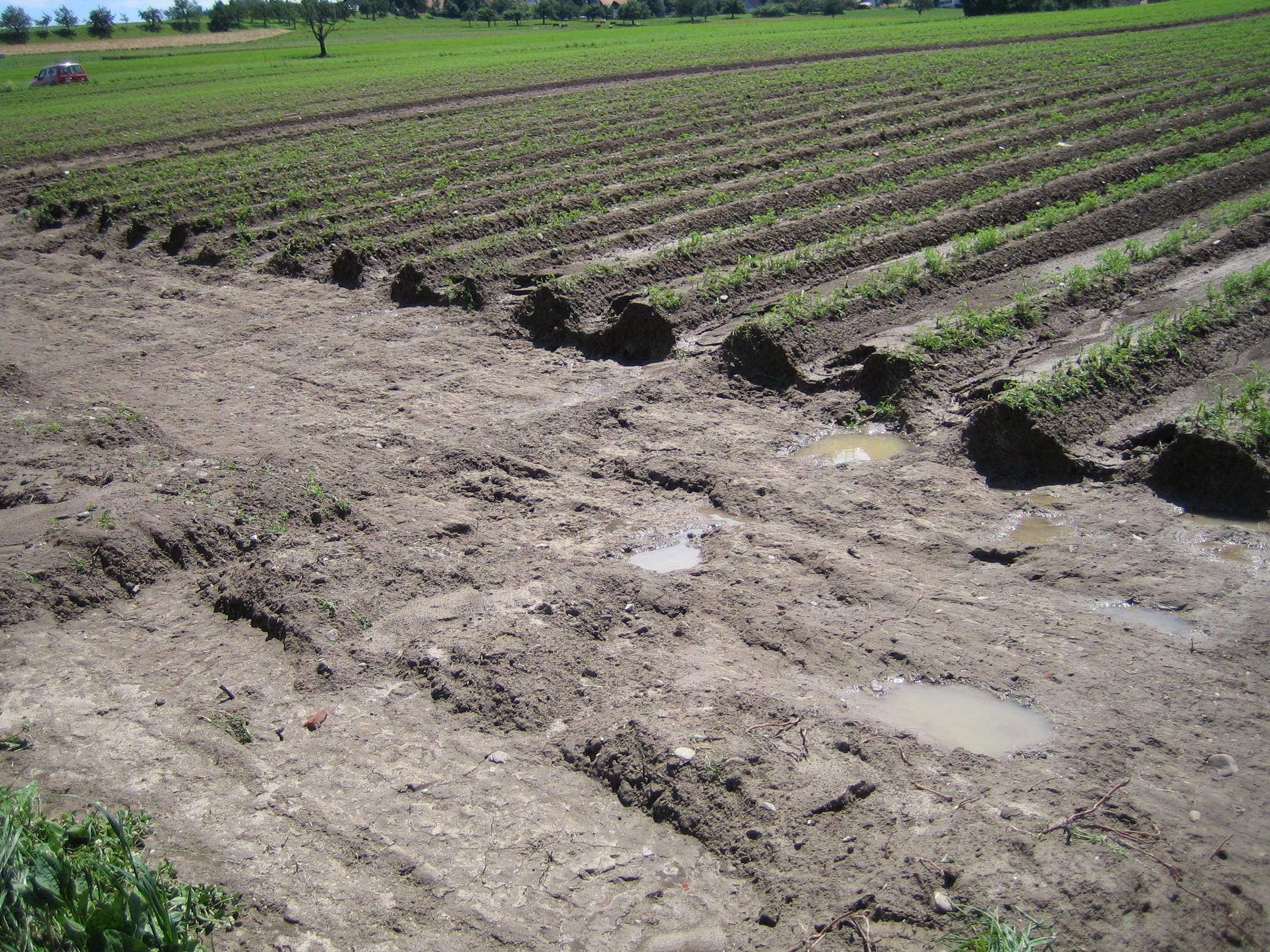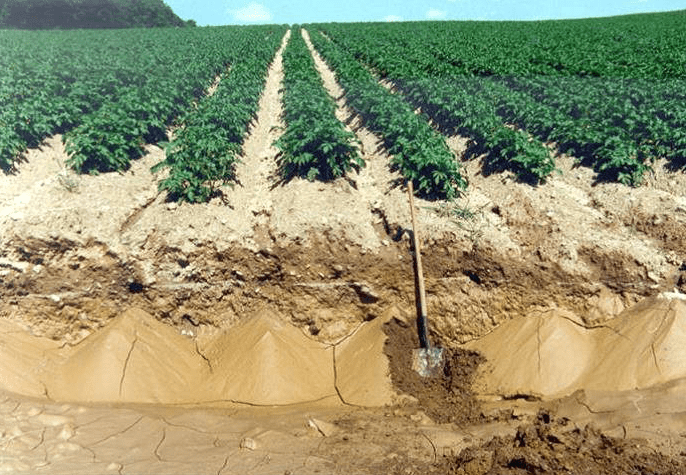In case you haven’t noticed, we’ve been getting a LOT of rain lately. As part of connecting you to your local food and the farmers who grow it, we also want to share some of the unique challenges our farmers face that you might not otherwise be aware of.
For most of us, days of heavy rain are a mere inconvenience. Wet shoes, carrying an umbrella, maybe a gloomy mood… However, rain doesn’t usually hit us in our pocketbooks.
If you’re a local San Diego farmer right now, all the recent rain is way more than a mere inconvenience: it can downright imperil your livelihood.
How Too Much Rain Hurts Farmers
Goldilocks liked her porridge just right, not too cold, not too hot.

A split orange still on the tree, one of the negative effects of too much rain.
Plants are like Goldilocks: they grow best in certain temperature and soil moisture conditions. Too little rain? Plants dry up and either have stunted growth or die. Too much rain? Plants’ cells become engorged with water, reducing flavor and potentially even splitting fruits like tomatoes, citrus, and melons, which can lead to total crop loss.

Erosion and water contamination from agricultural runoff cause huge problems around the US and the world each year.
Also, when it’s raining for extended periods of time, there’s no sun out so plants can’t photosynthesize to put energy into balanced growth. If farmers don’t have healthy living soil (which is more often the case on conventional farms than organic farms), large amounts of top soil can erode off of their farms and fertilizers wash out of their soil, contaminating aquifers, rivers, oceans and other bodies of water.
If heavy rains happen to come at a point when farmers are sowing seeds or transplanting seedlings out into their fields, rains can cause big time delays, which translates into serious financial stress. Farmers also like to avoid running tractors and other heavy machinery over wet fields, since doing so can cause severe soil compaction which can inhibit plant root growth, leading to less vigorous plants many growing seasons into the future.
There are lots of other problems farmers experience due to torrential sustained rains, but the bottom line is this: perhaps more than any occupation in the world, farmers’ livelihoods are directly linked to short-term weather phenomenon and long-term climate shifts.
Farming is a tough job, and we’re so grateful for the work our local farmers do to put fresh food on our tables. We hope you are too!
Order Now!
Get your Daily Harvest Express order placed right now (or no later than Sunday evening at 5 pm) so you can enjoy another week of fresh, healthy food from local farmers!
If you’re an existing customer, check out the What’s In My Box page to see what’s headed your way or to customize your order. If you’re a new customer, learn more about which service is best for you by clicking the button below:
Order Now
Want to get more articles like this?
Subscribe to our weekly newsletter to get more local food & farming news from Daily Harvest Express!

